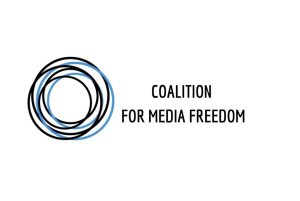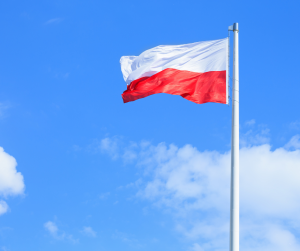The Independent Journalists’ Association of Serbia (IJAS) strongly condemns the attack on Insajder journalist Nataša Mijušković, the assaults and intimidation of photojournalists from Radio DIR (Ruma), the unlawful treatment of Danas journalist Vojin Radovanović, as well as the threats directed at N1 TV journalist Tatjana Aleksić. IJAS demands an urgent investigation and prosecution of the perpetrators, as well as an internal review of the conduct of police officers present on the ground.
According to Insajder’s newsroom, last night, while reporting from the gathering near the National Assembly of Serbia, journalist Nataša Mijušković was attacked in front of an improvised tent camp by a group of men in plain clothes who refused to identify themselves. After she entered the camp—having shown her press ID to police officers—and took several photos, she was surrounded, grabbed by the arm, and forced to show the recorded material under the threat “so we don’t break every bone in your body.” She was also insulted with: “How does it feel to be a traitor of the Serbian people working for Insajder TV?” The men then followed her to a police cordon, where one officer “amicably” told her not to enter the camp again. When she asked, “Is this occupied territory?” and noted that another officer had allowed her in, she was told to report the incident by calling 192 (police).
IJAS once again points to police passivity in situations where journalists’ safety is threatened: the police are obliged to respond immediately on the spot, to record the report, provide protection, and take actions within their competence—not to instruct victims to “later” call 192 or go to a station.
In the same area, a group of unmarked men surrounded Radio DIR photojournalists. They demanded that footage be deleted from their devices and then slapped them on the head, after which one colleague sought medical assistance. During the incident, a female photojournalist had her camera lens snatched, and her colleague had his press ID ripped off from the lanyard around his neck. The lens was recovered, but the press ID was not. The case has been reported to the police.
Last night also saw a case of unlawful conduct toward a reporter from the daily Danas. JZO commander Marko Kričak checked the ID of journalist Vojin Radovanović on Resavska Street, even though Radovanović was wearing a yellow press vest and clearly stated that he was a journalist. He was told: “You were filming police actions, so let’s see.” Police officers, including Kričak, demanded that he show the contents of his backpack, and Kričak photographed the journalist’s ID card while it was in his hands. When asked whether ID checks of journalists are standard practice, the answer was that they are not—which makes this case even more serious.
In a separate incident, N1 journalist Tatjana Aleksić received a threat via an Instagram comment from the account “Goran Savić”: “run over the scum… you especially, onto the hood.” This threat was reported to the Special Department of the Public Prosecutor’s Office for High-Tech Crime.
IJAS notes that 2025 has seen a record number of attacks and threats against journalists, while the number of prosecuted cases remains minimal. Many reports are dismissed, and victims often receive no information about the outcomes of proceedings. This practice must stop immediately.
We demand that the Ministry of Internal Affairs and the competent prosecutor’s office urgently identify the attackers and threatening accounts, initiate proceedings, and inform the public about the results.
We further demand an internal review of the conduct of police officers present near the Assembly and on Resavska Street, including JZO commander Marko Kričak, as well as in all other recent cases where police have assaulted journalists. Responsibilities must be established, the attacks must stop, and officers must perform their duties in accordance with the law.
Journalists must be allowed to work freely in public spaces, including filming police actions when it is in the public interest.
We emphasize that all police units and duty services must receive clear instructions: in cases of attacks and threats against journalists, officers must respond on the spot, without shifting responsibility to the 192 hotline.
The intimidation of journalists, threats of physical violence, and obstruction of work in the public interest are unacceptable. IJAS provides legal and psychological support to colleagues and urges all journalists to immediately report incidents to the competent authorities and to IJAS for record-keeping and assistance.
Belgrade, 3 November 2025
Independent Journalists’ Association of Serbia (IJAS)




